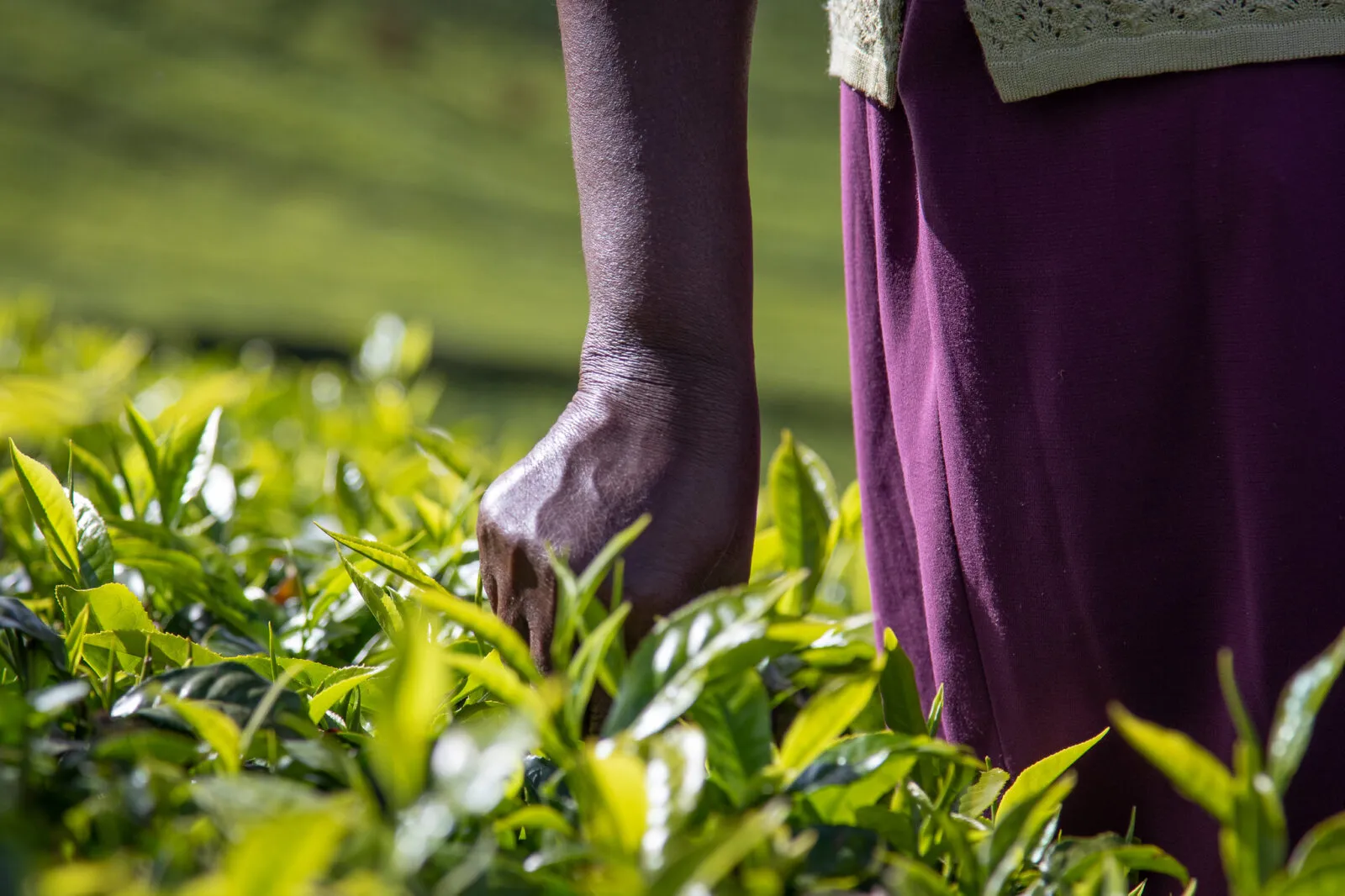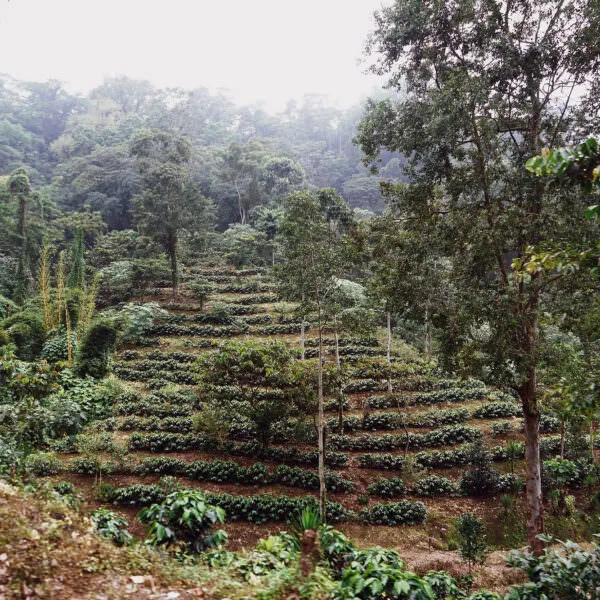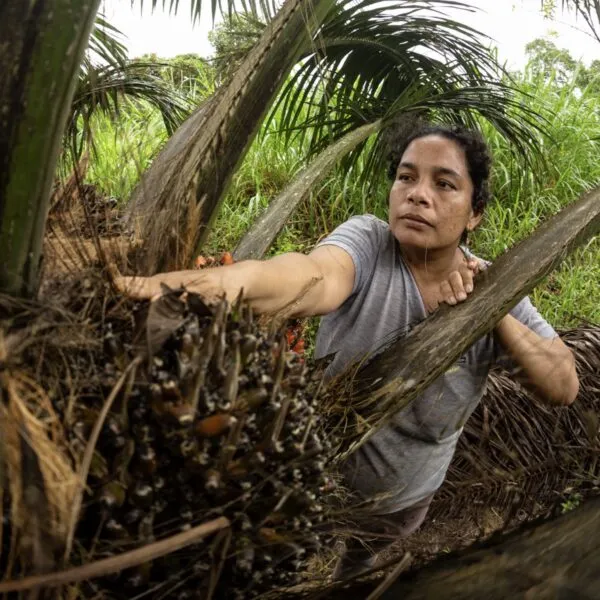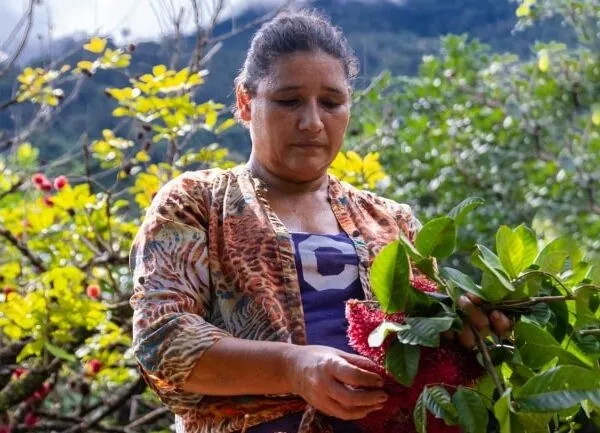In rural Kenya, climate change and the mechanization of farm work have made agricultural jobs increasingly scarce, forcing many women to take whatever work they can get—even when it means suffering the worst kinds of abuse. Elizabeth Kiende, a Rainforest Alliance gender expert in Kenya, sheds light on the roots of the problem.
In Kenya, a staggering 76 percent of women work in agriculture. They often do back-breaking physical labor for low pay and little job security.
Worse, sexual violence against women farmworkers is commonplace. While the exact incidence is unknown—in part due to women’s fear of reporting—a review of available literature suggests that globally, sexual violence is a “long-standing and pervasive norm” in agriculture.
To help prevent such abuse on certified farms, the Rainforest Alliance Certification Program includes strict farm and supply chain requirements on human rights and labor rights, including safe working conditions. Farms and businesses that participate in the program are audited against a rigorous sustainability standard that includes these requirements, which are based on the core International Labor Organization (ILO) Conventions, as well as the ILO Workplace Violence and Harassment Convention 190, and the Convention on the Elimination of all Forms of Discrimination Against Women (CEDAW). Our current certification program requires farms to establish gender committees and grievance committees (where human rights violations may be reported), to further support women’s safety on certified farms. The program also embeds a holistic, “assess-and-address” approach to preventing human rights violations.
But it is not enough, Elizabeth Kiende, a Rainforest Alliance gender expert in Kenya, said. “The problems are systemic; interventions need to go beyond what certification can do.”
The roots of the problem
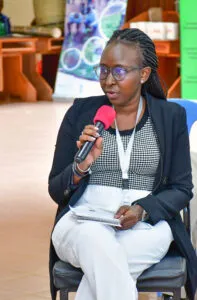
The systemic problems Kiende refers to are complex and deep-rooted. Crushing poverty, stemming from colonialist exploitation of land and people, along with misogynist cultural attitudes, have left rural women virtually powerless in the fields and at home. A poor woman with children to feed, at the bottom of the social hierarchy, can’t afford to report assault or harassment and risk losing her job—and sexual predators understand this all too well. All too often, when a woman dares report sexual violence, her family and community lay the blame on her; she is ostracized while her abuser remains free.
In tea landscapes in Kenya, Kiende said, cultural attitudes and practices further contribute to the prevalence of sexual violence on farms. “In many rural areas, it’s not even viewed as abuse. It’s just normal—it’s like if you grow up speaking English, English is the language that you know,” she said. Similarly, in these settings, traditional justice—meetings known as barazas, with local elders—is the most familiar form of justice; a rural woman would be unacquainted with how police might be able to help.
“In many rural areas, it’s not even viewed as abuse. It’s just normal—it’s like if you grow up speaking English, that’s the language that you know.”
Women in rural Kenya also tend to be the last to receive resources, Kiende added. With inheritance practices, for example, “if a father has five sons, the sons divide up the land and the daughters end up on a plantation plucking tea.” Women are the last in line for schooling, jobs, and, when times are tough, food. “Women always eat last,” Kiende said, adding that this is the norm all over the world.
We need to get everyone on board
Educating women on their rights and strengthening their economic position, so that they’re less vulnerable to predators in the workplace, is critical to addressing sexual violence in agriculture, Rainforest Alliance gender expert Joky François said. Putting women in supervisory and management positions and ensuring that they can access trustworthy grievance mechanisms is also an important step.
To truly affect a change in cultural attitudes, however, it is men who must be educated, Kiende said. Gender committees on certified tea estates have already opened the door for local non-profits with expertise in this area to begin training men to become “gender champions.” “We need to invest more in educating men so that they advocate for women and girls. Only when men understand women’s value will this stop,” she said.
But community-level change like this, while important, can’t eradicate sexual violence in agriculture: Governments, companies, and individuals around the world must all take action, François said. Governments need to expand funding for programs that address sexual violence in agriculture, while large-scale agribusinesses need to proactively support actors up and down supply chains to address the root causes of sexual violence. François added that they can do this by strengthening due diligence systems, relationships with local non-profits, and above all, women’s agency.
ILO Convention 190, the first-ever global convention to combat violence and harassment in the workplace, is a critical piece of the puzzle, François said. “But progress has been slow. Only 24 countries are expected to ratify it by the end of the year.” The ILO encourages individual citizens to get involved with its campaign to stop gender-based violence and harassment in the workplace.
In the tea estates and factories that she works with in Kenya, Kiende sees a hunger for change. “The will is there, but there’s a capacity issue—a lack of investment and resources.
“And beyond that, it’s a world issue,” she said. “All of us need to get on board to stop gender-based violence—not just here, but everywhere.”
